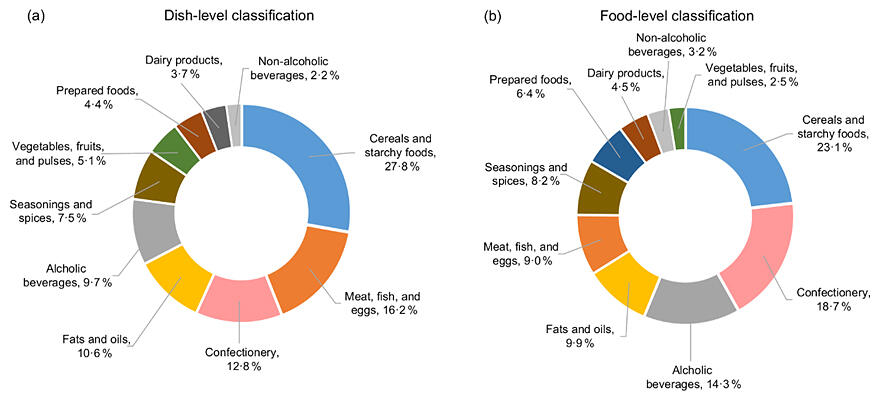Ultra‐processed foods are highly processed foods that are manufactured by blending multiple ingredients using industrial methods. The high consumption of these foods may reduce the quality of one's diet. However, due to the limited number of nutritional studies on ultra‐processed foods in Japan, the association between ultra‐processed food consumption and diet quality remains unclear.
A research group led by Project Research Associate Nana Shinozaki and Project Professor Kentaro Murakami of the Graduate School of Medicine at the University of Tokyo, analyzed detailed dietary record data obtained from 388 Japanese adults over a four‐day period. The analysis revealed that energy (calorie) intake from ultra‐processed foods accounted for 30‐50% of the total daily energy intake, and individuals with higher energy intake from ultra‐processed foods had a lower diet quality. This discovery was published in Public Health Nutrition.

Shinozaki, N., Murakami, K., Asakura, K., Masayasu, S., & Sasaki, S. (2023). Consumption of highly processed foods in relation to overall diet quality among Japanese adults: A nationwide study. Public Health Nutrition, 1‐14.
doi:10.1017/S1368980023000721
The research group obtained dietary record data from 388 Japanese adults aged 20‐69 years residing in 20 regions (23 prefectures) of Japan in 2013. The participants were asked to measure and record everything they ate and drank over a four‐day period. All foods recorded in the diet were then classified into the following four levels based on the level of processing: "unprocessed and minimally processed," "basic processed," "moderately processed," and "highly processed" using a food classification framework developed by the researchers at the University of North Carolina at Chapel Hill, USA.
The quality of the diet was evaluated using two indexes: the Healthy Eating Index‐2015 (which measures the degree of adherence to dietary guidelines for Americans) and the Nutrient‐Rich Food Index 9.3 (which assesses the overall quality of the diet from the perspective of nutrient density). The research group also examined whether the estimated consumption of ultra‐processed foods and its association with diet quality differed when meals were prepared away from home, such as eating out and consuming prepared foods. They classified these meals based on the level of processing either as a whole without breaking it down into ingredients (meal‐level classification) or by individually classifying the ingredients in the meal (food‐level classification).
The results showed that the proportion of ultra‐processed foods in total daily energy intake when meals were prepared away from home was 48.3% when classified at the meal level and 32.9% when classified at the food level, indicating that the proportion of ultra‐processed foods was significantly higher when classified at the meal level than at the food level.
Furthermore, regardless of the classification method at the food or meal level, cereals and starchy foods (e.g., bread and noodles) were the food groups with the largest proportions of contribution to the total energy intake than ultra‐processed foods. Similarly, regardless of the classification method of the foods, the groups with higher energy intake from ultra‐processed foods had lower total scores on the assessment index, i.e., a lower diet quality.
This is the first study to assess the association between ultra‐processed food consumption and diet quality using data from a nationwide dietary survey in Japan. In recent years, Japan has experienced a Westernization of dietary habits, accompanied by an increased consumption of alcoholic beverages and prepared foods. The findings of this study are considered to be important for determining public nutrition policies in Japan. In the future, more research is expected to investigate how ultra‐processed foods are linked to different health conditions or diseases.
<Examples of foods by processing level>
- Unprocessed or minimally processed: eggs, brown rice, honey, herbs, spices, vegetables, fruits
- Basic processed: unsweetened fruit juices not from concentrate, egg whites, whole wheat, oil, unsalted butter
- Moderately processed: sweetened fruits and vegetable juices, sweetened yogurt
- Highly processed (ultra‐processed food): jelly, margarine, potato chips, sausages, hams, sweet pastries, alcoholic beverages, soft drinks
This article has been translated by JST with permission from The Science News Ltd. (https://sci-news.co.jp/). Unauthorized reproduction of the article and photographs is prohibited.




